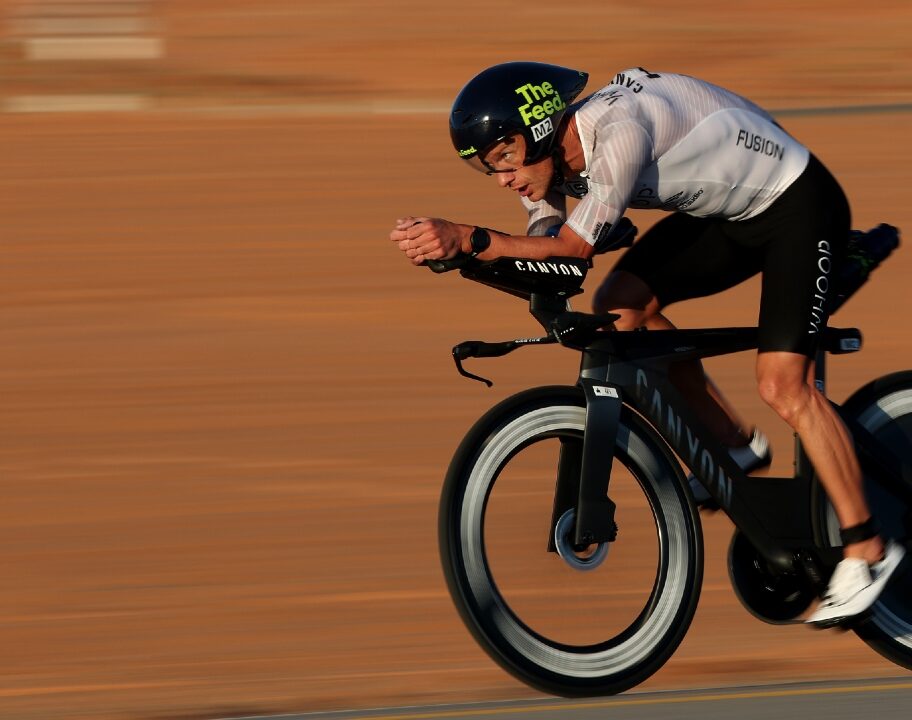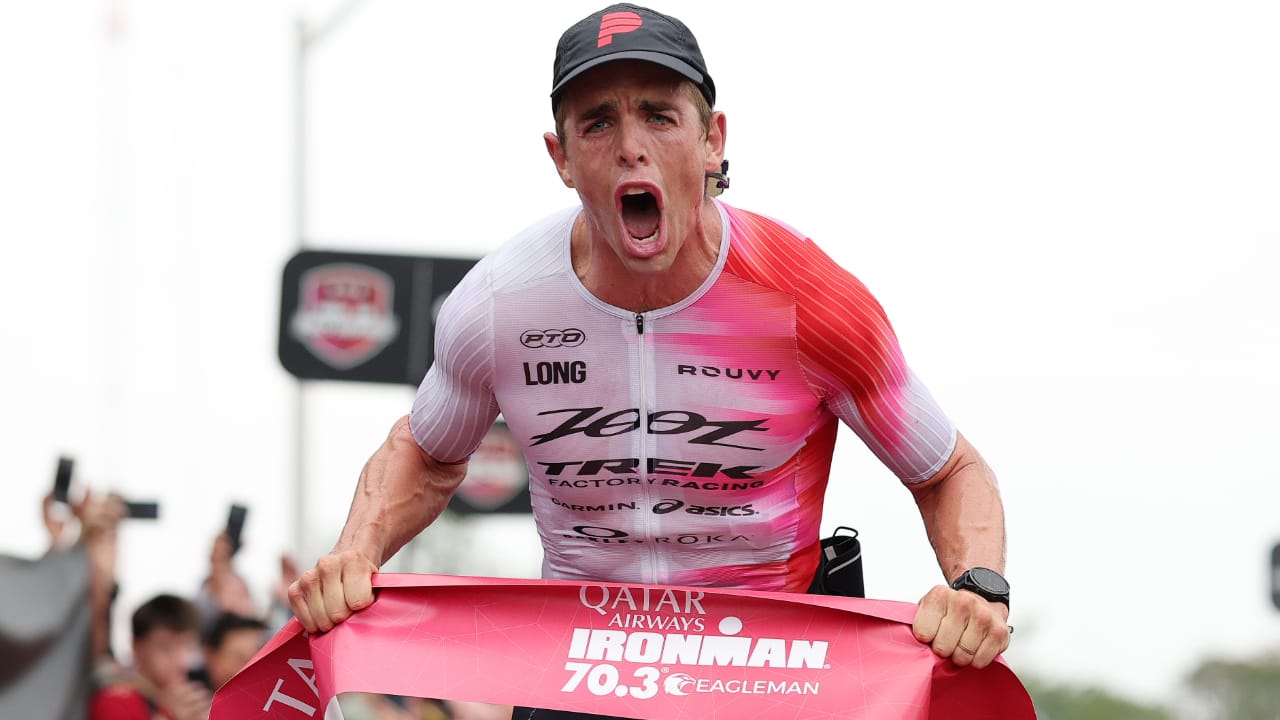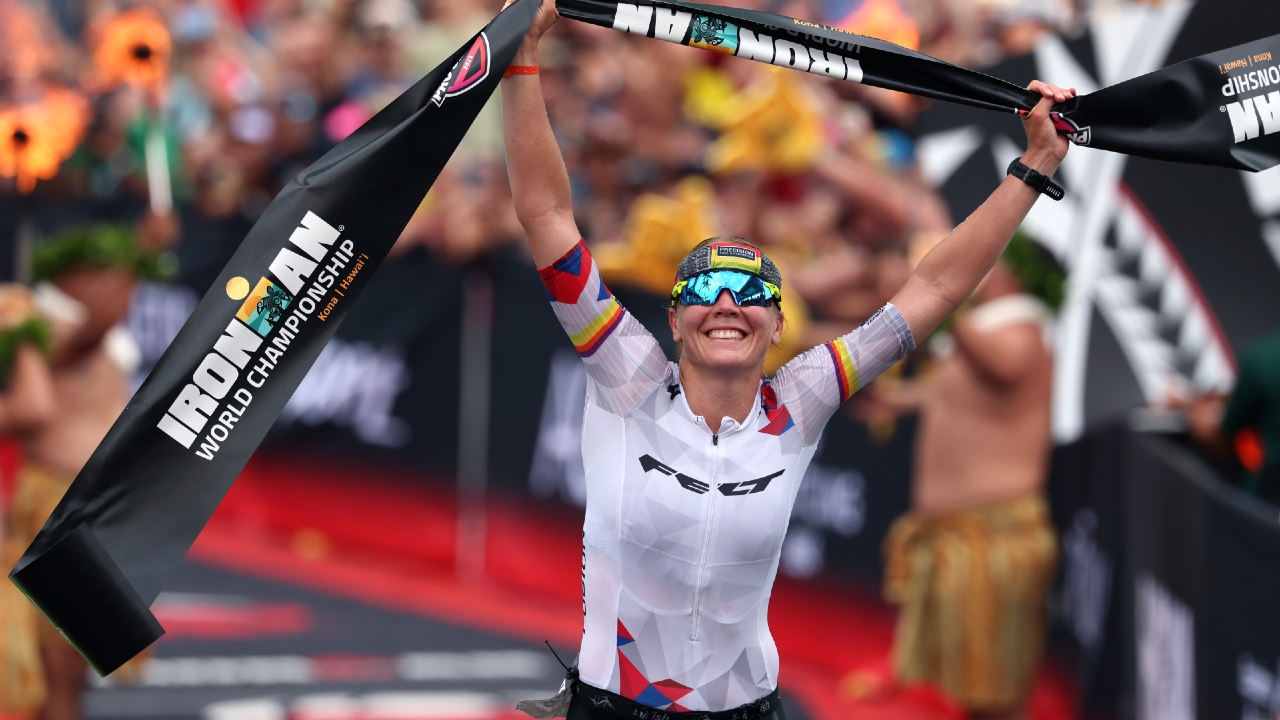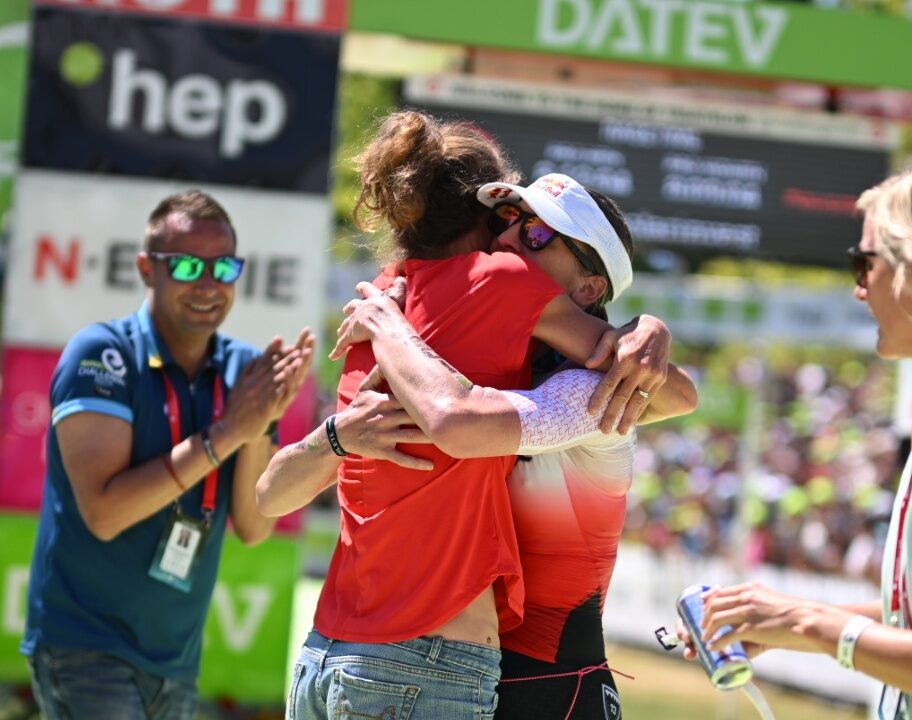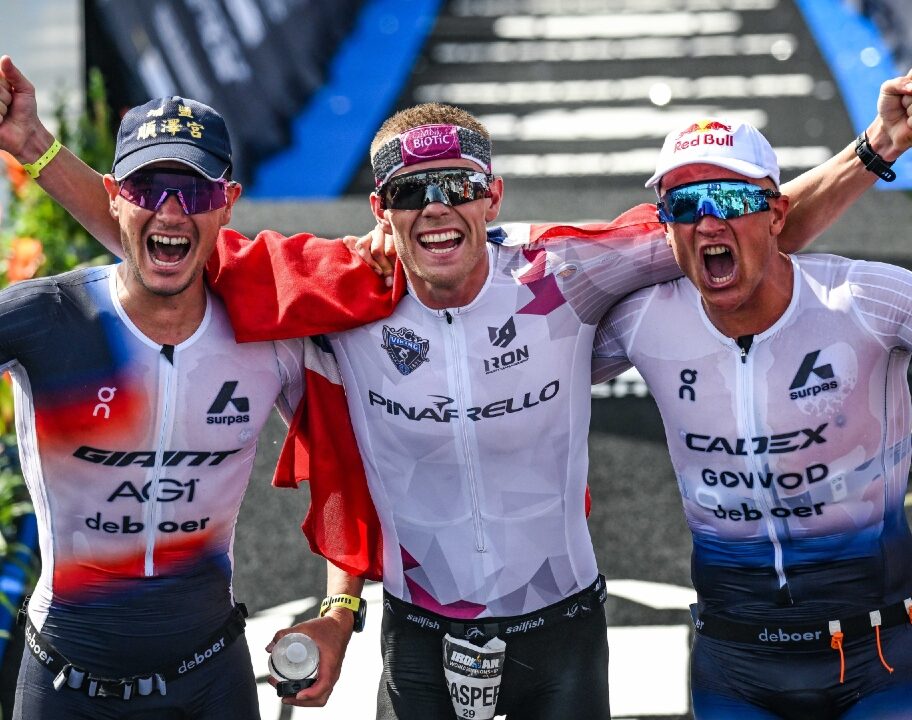If you’re an age group triathlete, chances are you’re trying to do it all. Train hard, work hard, perform to your potential – all while still showing up for your friends, family and loved ones. Choosing the triathlon life has so many upsides, but it can be a bit of a balancing act at times. And for most of us, recovery is the first thing we sacrifice in the name of keeping all the plates spinning.
It’s no surprise then, that there are heaps of recovery products out there that promise to help you on your way to your next start line. Magnesium products, in particular, have become hugely popular. So is magnesium a recovery gimmick, or something worth parting with a few pennies from your ‘new bike fund’ to invest in?
Let’s take a deep dive into why magnesium is particularly important for endurance athletes, how supplementing your intake could help to improve your recovery and sports performance. Plus, the best way to take it – including the alternative if you can’t stand the thought of another pill or powder gathering dust on your bedside table.
What does magnesium actually do?
Magnesium is a mineral that plays an important role in a wide range of functions within the body. It’s likely you’ve come across it in reference to muscle function. But magnesium actually drives over 300 biochemical reactions in the body. From regulating stress responses to aiding nutrient absorption, and much more in between.
Magnesium and muscle function
Let’s start by looking at how magnesium impacts muscle function. 20% of the body’s total magnesium is stored in our skeletal muscle. [1] You’ve probably heard people talk about using magnesium supplements to help with cramps. Muscles are made up of loads of individual fibres. When a muscle contracts, this is because two filaments (actin and myosin) within the muscle sarcomere (the contractile unit in muscle fibres) bind and slide past each other. This causes the fibres to shorten and generate force.
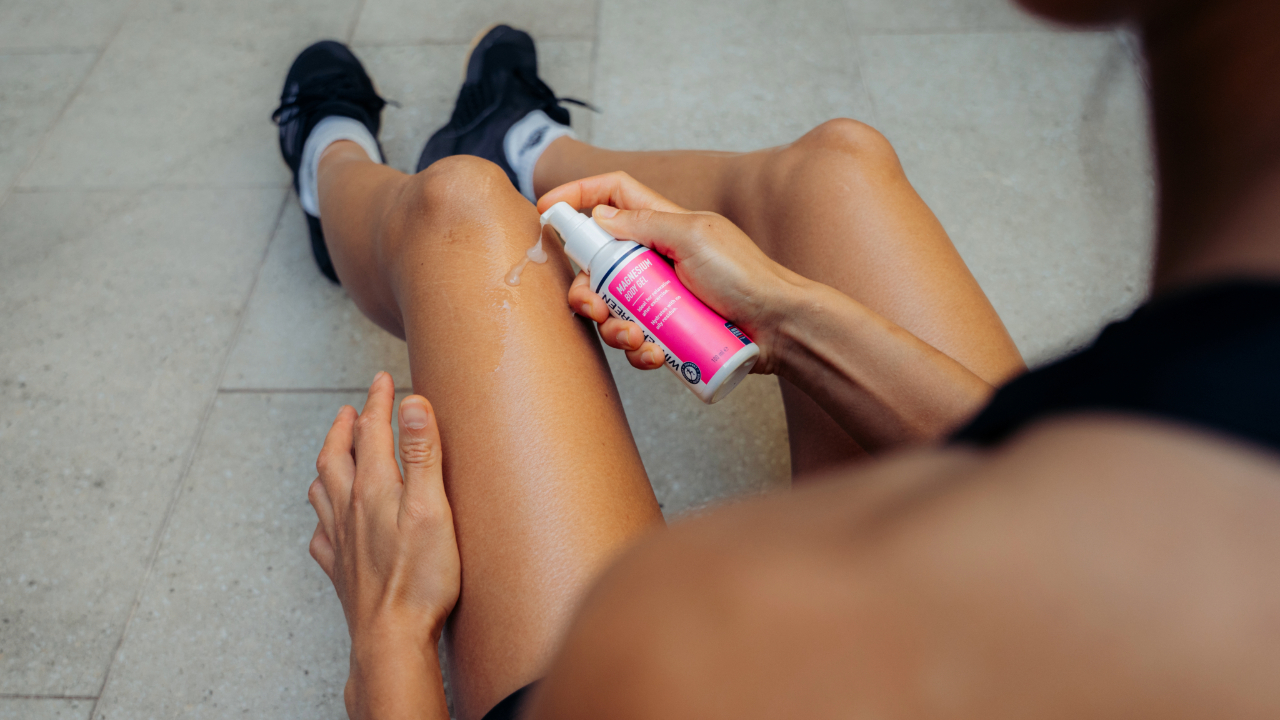
Without going too deep into the science (though if you’re interested, read up on Sliding Filament Theory to learn more). Calcium is responsible for ‘exposing’ the binding sites on the actin filaments, allowing myosin to bind to actin and ‘nod’ which is what creates the muscle contraction. Magnesium regulates this contraction, acting as an agonist for calcium and enabling the muscle to relax. As well as its role in the chemical process which allows muscle contraction and relaxation to function. Magnesium also “inhibits the release of excitatory neuro- transmitters” [2] and reduces muscle receptivity to these neurotransmitters, helping to promote overall muscle relaxation.
If the calcium-magnesium balance is out of whack, this is where you can get muscle cramps – a cramp is essentially the muscle contracting ‘inappropriately’ with unnecessary force for an extended period.
Energy production and neuromuscular recruitment
Alongside maintaining normal muscle function in terms of contraction and relaxation. Magnesium also plays an important role in energy production. It helps with the synthesis of adenosine triphosphate (ATP) in your cell’s mitochondria – ATP is essentially your body’s energy currency. Magnesium helps convert glucose from the food we eat into glycogen, the primary fuel source for our muscles. And it’s a cofactor in protein synthesis, contributing to muscular repair and growth.
Magnesium is also involved with the process of nerve impulse conduction [3], contributing to optimal neuromuscular recruitment (i.e. your muscles doing what the brain tells them!). It even helps to maintain a normal heart rhythm. By facilitating muscle relaxation in the smooth muscle of the intestines, magnesium can also help to regulate a healthy digestive system and regular bowel movements.
Magnesium beyond muscles
Magnesium does far more than support muscle function, it also plays a key role in bone development. The bones store 50–60% of the body’s total magnesium. It also helps in the production of serotonin which in turn promotes the production of melatonin (aka the sleep hormone). And aids regulation of levels of the stress hormone, cortisol.
Why magnesium is particularly relevant to athletes
Given that magnesium seems to be the mineral-equivalent of a bike multi-tool – handy for multiple uses. It’s obviously an important micronutrient for all populations. But for athletes, the role magnesium plays in the body is particularly pertinent.
Muscle function and performance
Optimal muscle function and neuromuscular recruitment during activity is going to help you to perform at your best. And the role magnesium plays in recovery and protein synthesis means having a sufficient intake could help you to reduce your risk of injury and ease off any muscle soreness faster between sessions.
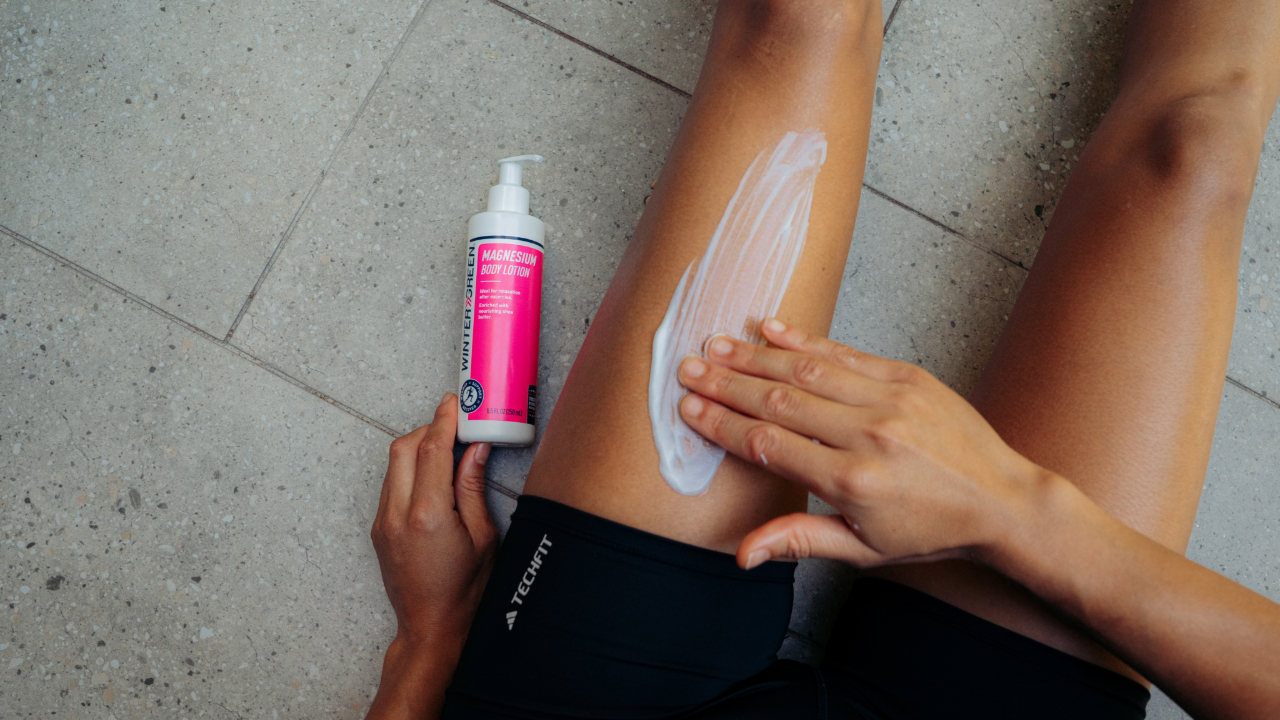
Reduced stress
High levels of stress don’t just make us feel wiped out mentally. It also hampers your body’s ability to recover from training and can result in “dampened muscular and neural adaptations”. [4] And one of the most counterproductive things about training for triathlons as an age-grouper, is that you’re loading a whole bunch of physical stress on top of the mental stress that comes with trying to keep the work-life-triathlon plates spinning.
Magnesium can help to inhibit the production of the stress hormone, cortisol. A study found that: “In athletes who are subjected to severe physical stress […] 17 mmol magnesium supplementation per day lowered serum cortisol levels.” [5] Having a sufficient magnesium intake won’t be a magic bullet. But it may help to reduce the impact of stress on your body. Helping you to get better adaptations from your training hours, and making it easier for you to relax and recover between sessions.
Improved sleep
We all know that sleep is key for recovering properly from training so our bodies can adapt and get stronger. Magnesium helps to inhibit ‘excitatory’ neurotransmitters and cortisol – essentially helping you to relax physically and mentally. And by playing an indirect role in the synthesis of melatonin, it can help to regulate circadian rhythms so you can get to sleep easier and with better quality. Given that most of us are having to sacrifice time in bed in favour of time out training. Being able to maximise your sleep hours could be a game changer!
expert insight
“If you’re not optimizing your magnesium stores, you’re missing out on peak performance and muscle gains. Without magnesium, the enzymes that enable muscle protein synthesis are impaired, compromising recovery, hypertrophy, and strength. In addition, magnesium maintains the equilibrium for healthy testosterone and balanced cortisol levels, which can make or break an athlete. It also allows for the metabolism of cortisol after hardcore workouts by reducing nervous system activation, as well as accelerating the recovery process.”
Dr Jason Suter – Team physician at Team UAE Emirates, a world tour cycling team & Chief Medical Officer at DHL Stormers and Western Province Rugby.
Should I consider a magnesium supplement, and what type is best?
If you’re triathlon training, chances are you’re working up a sweat and ticking off bouts of long and/or intense activity several times a week. Multiple research studies have found that “prolonged exercise can result in lower than normal plasma magnesium concentrations,” with a typical reduction of around 10% attributed to both sweat and urinary losses following intense exercise. [6] It’s possible to get a sufficient intake of magnesium through your diet. But this means it could be worth supplementing magnesium to help boost your performance, improve your recovery and get better quality sleep.
What’s the difference between the various types of magnesium?
Once you start taking a look into some of the magnesium supplements out there, you’ll notice there are a few different types. That’s because magnesium always binds with another substance. Athletes, in particular, need to understand the differences the benefits and potential side effects of the various magnesium compounds.
Magnesium citrate (bound with citric acid) is a commonly found in oral vitamins/supplements. It tends to be readily absorbed by the body, but it can have laxative effects. Ideal if you’re taking it to help with slow gut movements, but definitely not a new supplement you’d want to try out the night before a race or a key training session!
Glycine is a neurotransmitter (a chemical messenger responsible for carrying messages around your body). Magnesium glycinate tends to be well absorbed and is often used to support sleep, relaxation and muscle aches.
Magnesium sulphate (sulphuric acid) and chloride (hydrochloric acid) are commonly found in bath salts and topical lotions, mainly used to help relieve muscle soreness and cramping.
Pyrrolidone carboxylic acid (PCA) is a natural moisturiser and helps to hydrate the skin and maintain barrier protection. Magnesium also helps to support cellular repair. So magnesium PCA products can be useful for taking care of your skin as well as your muscles after a hard day out training.
Topical magnesium vs oral magnesium – how to avoid GI issues when taking magnesium
From improved recovery and better neuromuscular recruitment, to reduced stress and better sleep quality. The research suggests there are a vast number of benefits from taking magnesium for triathletes and endurance athletes. But some individuals can experience unwanted side effects from taking magnesium orally. This can include nausea and stomach upsets. Which kind of defeats the object of taking it, if you’re having to dive into the bushes halfway through a long run! This is where topical magnesium can be the ideal option for athletes looking to up their magnesium intake and support their training.
expert insight
“Magnesium is important for so many of the body’s vital functions and should be part of any healthy lifestyle plan. What I love about using Topical Magnesium on athletes, instead of suggesting oral supplements, is the fast, targeted application. If athletes have sudden onset of cramp or fatigue in their legs, I apply the Topical Magnesium right on the affected area to quickly enter the skin, the blood stream and reach the targeted muscles.”
Daliah Hurwitz – Certified Sports Massage Therapist to Pro Athletes
Applying magnesium-based products directly to the skin allows the body to absorb them efficiently through intracellular pathways, bypassing the digestive tract. A study cited by Dermatology UK found that 89% of participants applying a topical magnesium solution showed a 59.5% increase in cellular magnesium levels. And a Cardiff University study confirmed that magnesium starts entering the skin immediately after application – far quicker than you’d experience relief from an oral solution. Massage and massage active ingredients like wintergreen and menthol can also speed up absorption.
Benefits of using topical magnesium
Particularly if you’re planning to use magnesium for the relief of muscle soreness, cramps and to speed up your recovery between sessions. Using a magnesium gel, spray or lotion can be the better choice. Not only is absorption faster and more efficient, it’s also easy to target a specific area. And you don’t have to worry about disruptive digestive side effects derailing your training.
The bottom line
Magnesium is a vital mineral for athletes looking to optimise their performance and recover faster between training sessions. If you’ve struggled with muscle cramps, lingering muscle soreness, poor sleep quality or high stress levels. It could be well worth supplementing your intake. And to avoid the risk of GI issues and reduced absorption you can encounter with tablet or powder magnesium supplements. Topical magnesium lotions, gels and sprays – particularly those which also contain wintergreen or menthol as these speed up absorption – could be the ideal solution.







